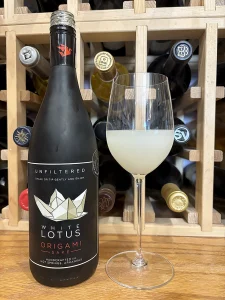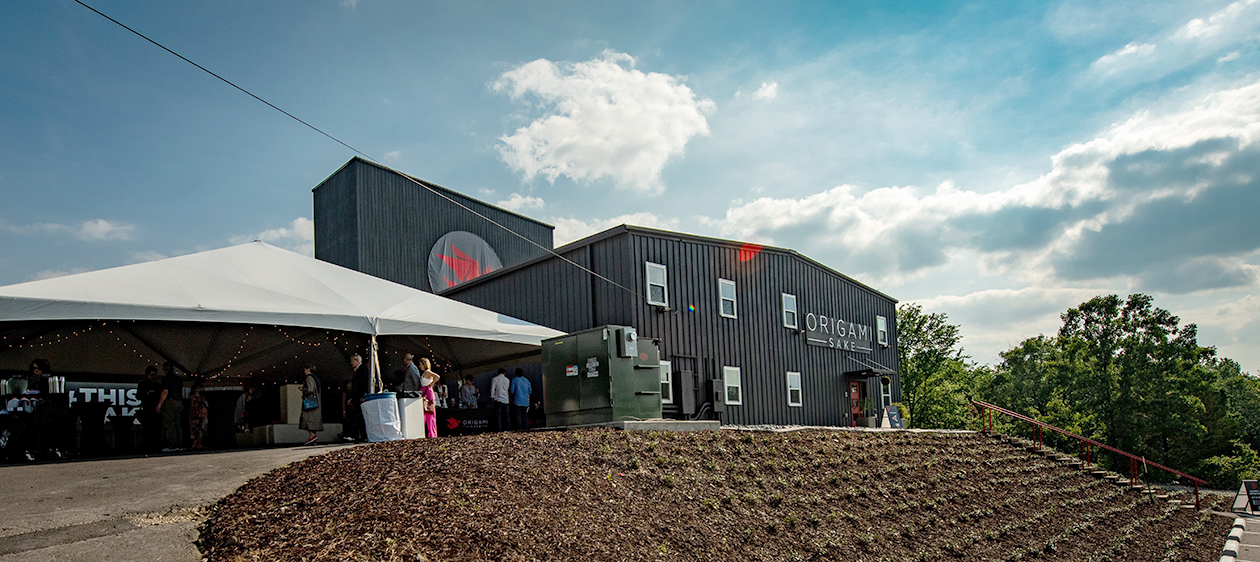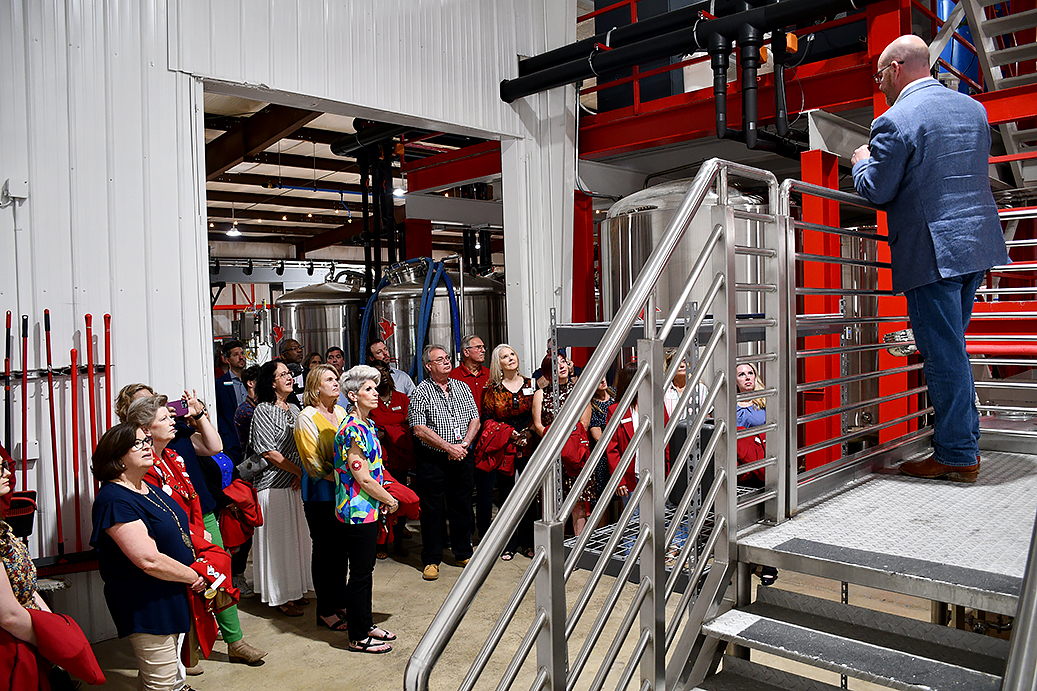Very light green hazy-cloudy color; honeydew, cantaloupe, pineapple, pear, citrus hint on the nose and palate (when served chilled); apple, coconut, sweet potato (when served warm).

Sweetness you expect from saké (SMV -25). Excellent acidity. Silky smooth texture. Light, fresh. Although it often is called “rice wine,” saké production is more similar to beer. It is brewed in a complex process involving polishing rice to remove outer bran and reveal the starchy interior. The polished rice is soaked, steamed, exposed to a special mold, then undergoes two different fermentations. After fermentation, the mash is pressed to remove the liquid from the solids, but the pressing can be skipped or modified to produce “nigori” saké—the style of this effort. Nigori produces a cloudy liquid and fuller mouthfeel. A bottle of nigori saké should be shaken before pouring to distribute the minute solids.
Origami sources its water from an on-site well that taps into the Ouachita Mountain aquifer in Hot Springs, Arkansas. The rice is sourced in Arkansas; Arkansas accounts for half of the rice production in the United States. The rice used by Origami is Yamada Nishiki—the “king of saké rice.” AR medium grain, 70% polishing. Origami employs traditional brewing processes, including koji fermentation and yeast fermentation (the two-step fermentation mentioned above).
Origami works to be the first Net-Zero certified saké maker in the U.S. The brewery obtains 100% of its electrical power needs through solar panels. It approaches zero-waste in its manufacturing. The brewery in close proximity to its rice grower, Isbell Farms, where Japanese rice has been grown for decades. Justin Potts is the brewmaster (toji). He is certified master of saké by the Japan Saké Service Institute. Satoshi Tamakawa is the consulting brewmaster and technical advisor. Eric Morris is the brewery director. Michael Daigle the brewer.

Origami Saké is the fulfillment of Ben Bell’s dream to establish Arkansas’s first saké brewery. Bell is a very successful entrepreneur in commercial general contracting, green building consulting, and solar development and energy efficiency contracting. The website notes: “Ben had a vision for Arkansas to become the Napa Valley of sake, and Matt was on board. While traditional sake rice is different from the long-grain rice grown in Arkansas, the state’s farmers had proven their knack for producing quality crops. In fact, Arkansas produces more rice than any other state in the nation, with 48% of the total rice supply coming from Arkansas.
“The key to making their vision a reality was finding a grower willing to specialize in sake rice. Luckily, they didn’t have to look far—Isbell Farms, located near England, Arkansas, had been growing Japanese rice varieties for decades. They started with koshihikari rice, which drew attention from Japanese media and opened up new opportunities. Later, they also successfully grew Yamada Nishiki, the ‘king of sake rice,’ which caught the attention of a sake brewery in San Francisco.
“Through a chance Google search, Ben met Chris Isbell of Isbell Farms in 2008. They kept in touch, and when Ben had a plan to start Origami Sake, he knew exactly where to turn for his rice supply. Origami Sake’s first test batch was made in October 2022, and sales began in mid 2023.”

Origami Saké White Lotus Unfiltered (Nigori), Hot Springs, Arkansas is delicious, versatile nigori (hazy) saké. When served chilled, there is balanced sweetness, melon, pineapple, citrus with umami backbone. Served warm, soothing coconut and apple notes emerge. Made in Arkansas with 100% Arkansas rice in a assiduously environmentally focused facility. Enjoy by itself or pair with sushi and sashimi, ramen, tacos, buffalo wings, pork roast, smoked salmon. Cheese—pair with soft, creamy cheeses—brie, camembert; fresh goat cheese; gouda, aged cheddar; blue cheese. Chilled, this will be fresher and more vibrant and pair with fresher cheeses. Warmed, this will pair with aged and stronger cheeses.
